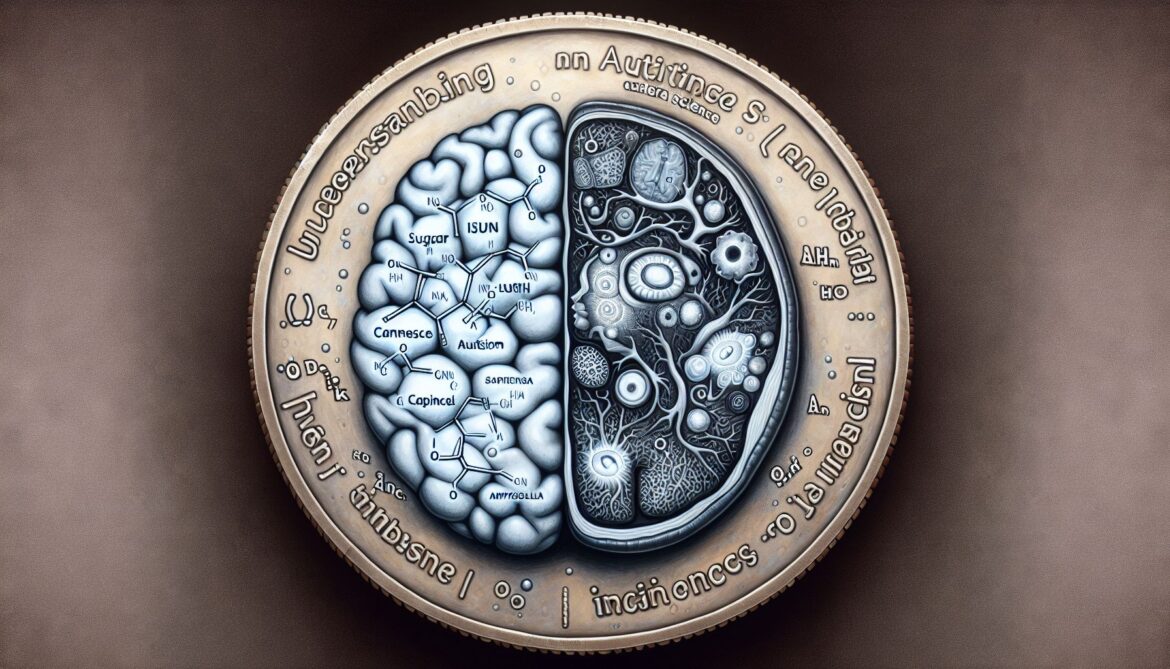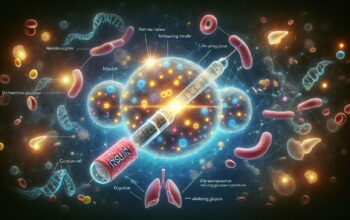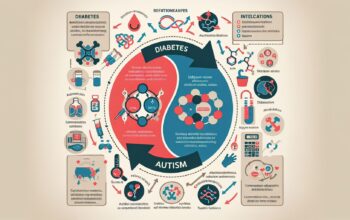In today’s era, where medical advancements have leaped bounds, numerous secrets of the human body still remain unraveled. One such enigma concerns the correlation or, perhaps, lack thereof between diabetes and autism. With more than 422 million people worldwide suffering from diabetes and autism affecting one in 54 children in the US, understanding both diseases is of utmost importance. This blog post aims to delve deeper into the current research available on the subject.
About Diabetes: A Quick Recap
Diabetes, often referred to as diabetes mellitus, is essentially a group of metabolic disorders that result in prolonged periods of high blood sugar levels. Symptoms can include frequent urination, increased thirst, and increased hunger. If diabetes remains untreated, it may lead to many complications such as stroke, heart disease and damage to the eyes.
The two primary types of diabetes are Type 1 and Type 2 diabetes. Type 1, which usually appears during childhood or adolescence, is an autoimmune condition where the body attacks and destroys the insulin-producing cells within the pancreas.
Meanwhile, Type 2 diabetes, which is more prevalent, often develops in middle-aged or older individuals. It results from the body’s inability to use insulin effectively.
Autism – The Basics
Autism Spectrum Disorder (ASD), referred to commonly as ‘autism’, is a complex, lifelong developmental disability that typically appears during early childhood. It impacts a person’s ability to communicate and interact with others. It’s also associated with routine-oriented behaviors and interests, along with unique strengths and differences.
Autism is a “spectrum” disorder, meaning every person diagnosed with autism is unique in various aspects – their skills, levels of functionality, challenges they face, and the support they need.
The Diabetes-Autism Connection: What Research Says
While the links between diabetes and various other diseases have been extensively studied, the connection between diabetes and autism isn’t as clear.
However, real-world evidence from studies are paving the way for new discussions. A significant study published in the journal JAMA found that children of mothers with Type 1, Type 2, or gestational diabetes (diabetes developed during pregnancy) had a higher likelihood of developing autism—an intriguing observation that fuels the diabetes-autism connection theory.
Most recently, a study carried out by Kaiser Permanente, involving over 419,000 children, revealed that those exposed to maternal diabetes had a 29% increased risk of being diagnosed with autism. It’s important to note that while these studies rely on large, population-based cohorts, they cannot definitively establish causation.
Deciphering the Connection: Potential Risk Factors & Biological Links
While the exact biological mechanisms linking diabetes and autism are still under investigation, researchers have proposed several theories. One implicates elevated blood sugar levels during pregnancy, possibly affecting fetal brain development and increasing autism risk in the offspring.
Another potential connection could lie in the role of insulin, a key hormone in managing blood sugar levels. Notably, some studies suggest that insulin has a neuroprotective effect, and impaired insulin signaling in the brain may contribute to neuronal dysfunction—a common characteristic in autism.
Moving Forward: The Importance of Future Research & Monitoring
Given the potential diabetic-autism link, it is crucial for maternal and child health providers to monitor the neurological development of children exposed to maternal diabetes. In the meantime, more large-scale studies are required to confirm these associations and uncover the underlying biological mechanisms.
Understanding these potential links can help in the development of preventive strategies and might shed light on the underlying causes of autism. The possibility of mitigating autism risk through improved glycemic control in prospective and current pregnancies could be an important practical implication of this connection.
Bringing Awareness Is Crucial
Being aware of the potential link between diabetes and autism is pivotal, not only for expecting mothers but also for healthcare providers. This awareness may contribute to early detection and intervention which can significantly improve the outcomes for children with autism.
While the science continues to evolve, it is important to maintain open and honest communication between healthcare professionals and patients, fostering a shared understanding and decision-making process regarding diabetes management during pregnancy.
Conclusion
The research journey into the link between diabetes and autism is a burgeoning one. The interconnectedness of human biology never fails to remind us how intricate our bodies truly are. As medical understanding develops, so too should society’s comprehension of these connections, thus promoting preventative healthcare, early intervention, and ultimately, lessening the burden of these illnesses on afflicted individuals and their families.




